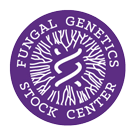Strain: Neurospora crassa
FGSC #1507
Reporting Genes: so
Species: crassa
Allele: P1490
Alternate Strain Number: 316
Mutagen: S
Depositor: DDP
Linkage Group: IR
Mating Type: A
Genetic Background: M
Opposite Mating Type: 1506
ref1: https://doi.org/10.1007/BF01787357
Genes
